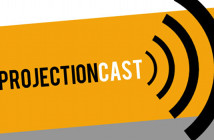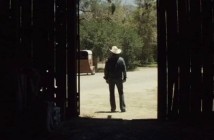There’s a question at the end of Life of Pi that gets posed to this character in the film who’s a writer, and by extension to us in the audience: what’s the better story? Which story do you prefer? He is (we are) supposed to choose between two different accounts of what took place during a 7-month period in the life of Pi Patel spent on a lifeboat in the middle of the Pacific Ocean. Movie audiences are constantly being presented with stories that they are meant to evaluate based upon a broad range of factors; less constant is the frequency with which viewers are seriously challenged to contemplate the role story plays in understanding the world around them, from religious views, to their families, to politics and culture. It’s easy to notice the extent to which stories are perhaps the central method we use to make sense of our lives. It’s the way we structure our news, a distinguishing feature of some of our most influential and popular art, and even how we end up thinking about our own lives, it seems. We tend to think of ourselves having a life story, detailing the big events that made us who we are.
There were a few movies this year that capture the interesting position story inhabits in our lives. Inevitably, these types of stories about stories pose some questions about the nature of truth, which the Life of Pi question sums up most succinctly. What story is better? Or, to expand on that, what story is closer to the truth? Which one conveys the truth better? What does it take to capture real truth in story?
Some would say that any attempt to capture the capital ‘T’ truth of any real life event is an eternal dragon chase. Sarah Polley’s marvellous documentary Stories We Tell examines a development in her life and that of her family from the variety of perspectives that were privy to the story in some capacity or another. By telling the story somewhat indirectly—and I’m not going to talk about the specifics because it’s better to hear it from her movie than from me—she says a number of things. First, we all tend to have a bit of an ambivalence towards story or some sort of double standard that we apply when it comes to our own stories, because story is a concept that is both personal to us and also indicates a degree of removal; memory is often constructed through story, and so we often recall parts of our own lives better when we think of it as a story, to the point that there’s a tendency to favor the story we’ve told or heard about an event than what little bits and pieces we may actually remember about the event itself. But also, there’s a foreignness to the concept of story, so we think of other people’s lives as stories but are at times more hesitant to apply that label to private things that happen to us. It’s not just some story; it’s my life!
 Polley also demonstrates beautifully the fallacy within the belief that there is one all-encompassing story that will show us the truth about any single occurrence. In fact, while stories help us understand things in different ways, they are ultimately reductive. They can’t help but have a limited perspective on a truth that is vastly more complicated than one person’s understanding or recount allows. One of her subjects seems to believe that his perspective should have primacy, but at that point in the film she’s offered us so many other crucial viewpoints that broaden the story’s picture that this one subject’s insistence of his own story’s superiority is unmistakably preposterous. At yet, at the same time, in the end we are left with Polley’s story above all as it is her movie we are watching, about which her self consciousness is clearly expressed to the audience. The implication seems to be that stories are most effective when we maintain an acute awareness of their limitations and of our own incomplete perspective. Seriously, just see the movie.
Polley also demonstrates beautifully the fallacy within the belief that there is one all-encompassing story that will show us the truth about any single occurrence. In fact, while stories help us understand things in different ways, they are ultimately reductive. They can’t help but have a limited perspective on a truth that is vastly more complicated than one person’s understanding or recount allows. One of her subjects seems to believe that his perspective should have primacy, but at that point in the film she’s offered us so many other crucial viewpoints that broaden the story’s picture that this one subject’s insistence of his own story’s superiority is unmistakably preposterous. At yet, at the same time, in the end we are left with Polley’s story above all as it is her movie we are watching, about which her self consciousness is clearly expressed to the audience. The implication seems to be that stories are most effective when we maintain an acute awareness of their limitations and of our own incomplete perspective. Seriously, just see the movie.
We’ve seen the roadblocks people run into when they get hung up on this notion that a story should capture absolutely everything about a series of events, right down to the tiniest details, in a couple of historical dramas this year. This is often the case with these types of projects: they are seen as telling the definitive story of President Lincoln, or Americans escaping from Iran, or Jesus Christ himself. While Mel Gibson’s Passion of the Christ probably didn’t nail down every single historical detail as accurately as possible (given that it’s derived from, essentially, stories), it provided a painfully clear picture of Gibson’s own religious priorities and the elements of this particular story that he finds most meaningful. Ben Affleck’s Argo has been criticized for its liberties with some elements of the Iran hostage crisis and diplomat rescue sequence. Spielberg’s Lincoln has been the source of debate regarding the accuracy of some of its points, including the lack of black involvement in the abolition process. I guess what I’m saying is that at the most, I find any sort of weakness in these sorts of details to be minor distractions in a greater context of storytelling. While historical films owe a great detail of energy to be spent recreating a certain authenticity for their time period, expecting them to represent every detail that we desire to see can be an unfair burden. Each story is best understood as a 2-hour snippet, from a relatively narrow perspective, out of a story far too broad for any individual to properly capture. Details may change, but when done in the service of communicating and relating the anxieties and fear experienced by those escaping a country in the middle of a hostage crisis, this seems to be a justifiable exchange, or an appropriate assessment of priorities, made by skilled storytellers.
So stories are a way of understanding things that have happened, or the way things are, the way we experience them. This often falls under the domain of myth. And while there are myths and stories that express truths about the way we understand the world, it’s just as easy for the limitations of story to be misleading, or at times cynically used for propagating ideas and ideologies meant to manipulate the public. It wasn’t until considering it in light of Sarah Polley and Ang Lee’s films from this year and their examinations of story that I retrospectively found The Tillman Story, the 2010 documentary by Amir Bar-Lev chronicling efforts by the family of Pat Tillman to present their version of Pat’s story, to be an equally fascinating glimpse of the power story plays in politics and culture. By mythologizing Tillman’s life and service in the military, including the murky details surrounding his death, it seems as though United States government officials consciously sought to use their version of the story to drum up support for their war efforts. The Tillman family subsequently has worked tirelessly, as the fantastic documentary shows, toward undermining the story that is presented by the military and government personnel, offering their own stories of Pat that present a portrait of a conflicted individual who, in their view, is closer to the truth of who Pat was than the two-dimensional heroic version portrayed by the politicians and military commanders. In an environment invested in the belief that war is just and noble, this version of Pat Tillman’s story seems to be preferred, even if it’s more difficult to defend as “true”.
 Truth—or probably more accurately, plausibility—is often seen as central to works of fiction as well. Critics and fans pore over the details of a show like Homeland and analyze the plausibility of various plot turns and devices. Plotting itself becomes a subject of scrutiny for movies and shows, as if it’s the central feature of story and all other elements come secondary. The brilliance of the story of Life of Pi, which Ang Lee captures with the utmost grace, is that it emphasizes the role of decision-making in storytelling, that decisions are indeed the defining feature of any story, the inclusions and omissions revealing more about an author’s intentions of meaning than the details themselves might. This is a bit of a metatextual reading of a piece of work, but I would contend that it also factors into a viewer’s reception on the surface of the work; the examination of a detail becomes all the more intensified when its presence or absence is made conspicuous. This supports the notion that all storytelling could really just be a psychological examination of the storyteller. It’s not only Pi’s story that compels us, but the fact that he decides to tell it that way instead of the alternative. He finds it to be the better story, the one he prefers. It’s the one that captures the truth of his experience at sea in a more complete way.
Truth—or probably more accurately, plausibility—is often seen as central to works of fiction as well. Critics and fans pore over the details of a show like Homeland and analyze the plausibility of various plot turns and devices. Plotting itself becomes a subject of scrutiny for movies and shows, as if it’s the central feature of story and all other elements come secondary. The brilliance of the story of Life of Pi, which Ang Lee captures with the utmost grace, is that it emphasizes the role of decision-making in storytelling, that decisions are indeed the defining feature of any story, the inclusions and omissions revealing more about an author’s intentions of meaning than the details themselves might. This is a bit of a metatextual reading of a piece of work, but I would contend that it also factors into a viewer’s reception on the surface of the work; the examination of a detail becomes all the more intensified when its presence or absence is made conspicuous. This supports the notion that all storytelling could really just be a psychological examination of the storyteller. It’s not only Pi’s story that compels us, but the fact that he decides to tell it that way instead of the alternative. He finds it to be the better story, the one he prefers. It’s the one that captures the truth of his experience at sea in a more complete way.
The story purports to be not an argument for but a proof of God. This seems to be largely provocative, but the idea that God is a concept that may be false in the details but true in the expression of a dimension of human experience that can only be conveyed through a type of story is mighty persuasive. And if the claim to truth isn’t entirely valid or complete, at the very least the defense of faith as the equivalent of understanding life through story provides a perspective that tends to be overlooked. Story doesn’t always fully capture the whole truth but instead gives an opportunity to witness a truth; it doesn’t obsess over details and realism in every case, but it conveys meaning that straightforward exposition is ill equipped to capture. And so it goes with movies.



